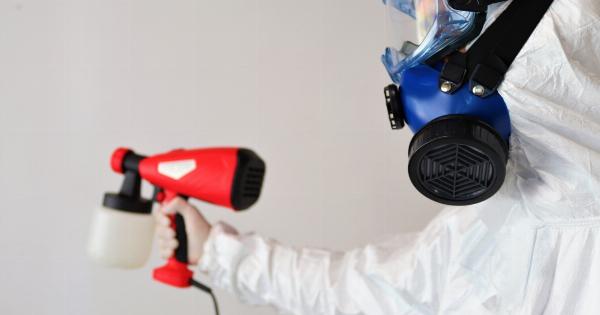Oxygenation is the process by which we provide our body with oxygen. This element is essential for our survival. A lack of oxygen can lead to a wide variety of health issues, from fatigue and headaches to heart disease and stroke.
When we have enough oxygen, we feel more energized, focused, and alert. We have more stamina and endurance, and we get a better night’s sleep. In this article, we’ll explore the key to optimal oxygenation, abundant energy, and restful sleep.
Air Quality Matters
The quality of the air we breathe is critical to our overall health, especially when it comes to oxygenation. Poor air quality can deprive our body of the oxygen it needs to function correctly.
Indoor air, in particular, can be heavily polluted due to contaminants such as mold, dust mites, and chemicals from cleaning products. These pollutants can cause respiratory issues, allergies, fatigue, and other health problems.
To improve your indoor air quality, you can take various steps. First, you can use an air purifier to remove contaminants from the air. You can also keep your home well-ventilated by opening windows and using exhaust fans.
Another option is to use natural cleaning products, such as vinegar, baking soda, and lemon juice, instead of harsh chemicals.
Breathing Techniques
The way we breathe affects how much oxygen our body receives. Most people take shallow breaths, using only the upper part of their lungs. This type of breathing is inefficient and can lead to a lack of oxygen in the body.
On the other hand, deep breathing can increase oxygen intake and improve overall health.
One breathing technique that can be beneficial is diaphragmatic breathing. This involves breathing in through the nose, filling the lungs, and expanding the diaphragm. Exhaling slowly through the mouth while letting the diaphragm relax.
This technique can help calm the mind, reduce stress, and improve oxygenation.
Aromatherapy
Aromatherapy is the use of essential oils for therapeutic purposes. Some essential oils can promote better oxygenation and provide a wide range of health benefits.
For example, peppermint oil has a cooling effect on the body and can help open up the airways for better breathing. Eucalyptus oil is another option that can soothe respiratory issues and improve breathing.
One way to use essential oils for better oxygenation is to diffuse them in a room. You can also add a few drops to a bath or apply them topically with a carrier oil, such as coconut oil or almond oil.
Exercise
Regular exercise is an important aspect of overall health. It can also improve oxygenation by encouraging deeper breathing and increasing blood flow. Exercise can also boost energy levels, promote restful sleep, and reduce stress.
There are many different types of exercise that can be effective for improving oxygenation, such as running, swimming, cycling, and yoga. It’s important to choose an activity that you enjoy and can make a part of your regular routine.
Dietary Changes
The food we eat can have a significant impact on our overall health and oxygenation. A diet high in processed foods and sugar can cause inflammation in the body and lead to chronic health issues.
On the other hand, a diet rich in fruits, vegetables, and whole grains can support oxygenation and improve overall health.
Some specific foods that can promote better oxygenation include leafy greens, such as spinach and kale, which are high in magnesium. Magnesium is essential for healthy lung function and can promote deeper breathing.
Nuts and seeds, such as almonds and pumpkin seeds, are also high in magnesium and can be a good addition to your diet.
Supplements
Supplements can be an effective way to support optimal oxygenation and overall health. Some supplements that may be beneficial include:.
- Vitamin D: Low levels are linked to respiratory issues and may negatively affect oxygenation.
- Magnesium: Helps support lung function and deeper breathing.
- Iron: An essential nutrient for healthy red blood cells, which carry oxygen throughout the body.
- Cordyceps: A fungus that may improve oxygenation and enhance athletic performance.
It’s essential to talk to a healthcare professional before starting any new supplement regimen, especially if you are taking other medications or have a health condition.
Sleep Hygiene
Getting enough restful sleep is essential for optimal oxygenation and overall health. Poor sleep quality can lead to fatigue, mood issues, and chronic health problems. To promote better sleep hygiene, you can take various steps, such as:.
- Establishing a regular sleep schedule and sticking to it.
- Avoiding caffeine, alcohol, and nicotine before bed.
- Creating a relaxing sleep environment by keeping the room cool, dark, and quiet.
- Avoiding screens, such as phones and computers, before bed.
Conclusion
The key to optimal oxygenation, abundant energy, and restful sleep is to take a holistic approach to your health.
Incorporating healthy habits, such as regular exercise, deep breathing, good sleep hygiene, and a healthy diet, can all support healthy oxygenation levels and improve overall health.





























